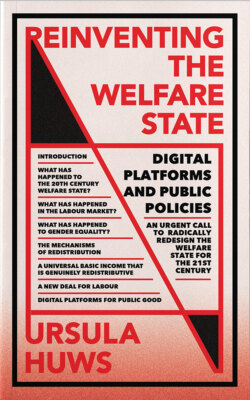Читать книгу Reinventing the Welfare State - Ursula Huws - Страница 17
На сайте Литреса книга снята с продажи.
THE GLOBAL DIVISION OF LABOUR HAS FRACTURED SOLIDARITIES BETWEEN ORGANISED WORKERS AND THE ‘RESERVE ARMY’
ОглавлениеMeanwhile, what has happened to the fragile solidarity between organised labour and the precarious reserve army of labour whose interests are constantly pitched against each other by employers trying to get work done at the cheapest possible price? As already noted, in the post-war period there were specific circumstances that enabled such solidarity, rooted partly in shared experiences and culture and partly in proximity, which meant that the same workers might move in and out of the reserve army, or see other family members do so. Institutional mechanisms existed for developing broad common demands and negotiating them at a national level. But the neoliberal policies introduced in the intervening period have driven deep wedges between workers, helped by technological change. Since the fall of the Berlin Wall in 1989, few parts of the planet have remained beyond the scope of transnational corporations. The reserve army is now, by and large, made up of strangers.
A global reserve army has been created, rapidly expanding, equipped with a basic knowledge of at least one world language, generic technological skills and a smartphone, able to be summoned at short notice to carry out one of the increasingly standardised tasks required in the twenty-first-century economy. This reserve army can be accessed in two distinct, but overlapping, ways: by moving jobs offshore to low-wage countries, or by using migrant workers in the domestic economy. In either case, a disciplinary effect is exercised over better-paid, organised workers. Whether you are told that your job could be sent to India or China, or outsourced to a company that employs migrant workers, the impact is essentially the same: you are less likely to hold out for demands for improvement to your wages and working conditions. And you are also less likely to know the workers who could replace you, to have mechanisms to appeal to their solidarity, or to empathise with their situation.
It is a rational response, in such a situation, to demand that the union dues you pay are spent on protecting the wages and conditions of the paid-up members and resisting any attempt to dilute the workforce. If you have lost faith in the ability of social democratic parties to represent your interests, it is also, unfortunately, a rational response to turn your anger against those unknown foreign workers who are undercutting you, and enter the embrace of xenophobic populist parties offering the promise of a return to the certainties of the past. This might explain much of the appeal of Brexit, Trump, Le Pen, the Freedom Party of Austria and the Alternative for Germany Party, although it says a great deal for the trade unions across Europe that, on the whole, they have been able to resist such divisiveness and continue to campaign against racism among their members.
To pose the problem in this way runs the risk of understating the complexity of the situation. The lack of solidarity between indigenous workers and foreign-based or foreign-born workers cannot be reduced simply to racism, although racism may often play a role in it. Once the mechanisms that were created, and reinforced, by solidarity between organised workers and the reserve army have been shattered, the resulting fracturing of the working class affects people of all origins. Many of the households in poverty, the users of food banks and the people sleeping rough on our streets are white people of British origin who have been failed by the social safety net. The global division of labour must therefore be seen as one precipitating factor among several that has brought us to this pass.
